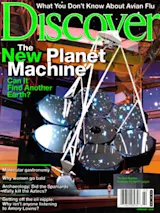If you happen to be one of the 28 million people who purchased an iPod in the past few years, chances are you've spent some time listening to your music in shuffle-play mode. I am a fan of shuffle play in theory. Increase the ease of assembling music collections that number in the thousands of albums, build a system for randomly accessing any song in that library at the touch of a button, and you have an engine of surprise and serendipity. Certainly, it's a terrific antidote to the plodding predictability of radio stations.
But shuffle play in practice is not as joyful. Granted, a randomized playlist can sometimes unearth songs buried on your iPod that you haven't listened to in years, and the surprise of hearing those songs afresh might reveal nuances you missed the first time around. But some songs should stay buried. I don't know how Duran ...














